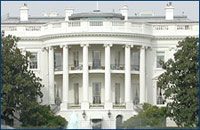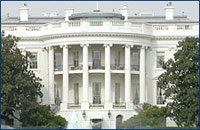Priorities for the Next President: Tax Policy
 One of the biggest priorities of the incoming President is to develop an economic plan. Included in this economic plan will be the next President’s vision of the Internal Revenue Code and tax policy. As illustrated by the Economic Stimulus Act of 2008, the Internal Revenue Code is frequently relied upon to influence behavior, including stimulation of the economy. The 2008 Act included tax rebates for low- and middle-income taxpayers and tax benefits for businesses, with a substantial increase in the expensing limits of Internal Revenue Code § 179. Under § 179, taxpayers are allowed to claim a current deduction for the purchase of tangible personal property used in a trade or business instead of recovering the cost over time by claiming a depreciation deduction. The maximum allowable deduction under § 179 is now $250,000, although that amount will be reduced to $128,000 in 2009. The 2008 Act also created a new fifty-percent special depreciation allowance for certain property placed in service during 2008. Unfortunately, the Act has done little to stabilize the economy, and the next President’s economic plan will also need to address the ailing stock and real estate markets and the overall financial crisis.
One of the biggest priorities of the incoming President is to develop an economic plan. Included in this economic plan will be the next President’s vision of the Internal Revenue Code and tax policy. As illustrated by the Economic Stimulus Act of 2008, the Internal Revenue Code is frequently relied upon to influence behavior, including stimulation of the economy. The 2008 Act included tax rebates for low- and middle-income taxpayers and tax benefits for businesses, with a substantial increase in the expensing limits of Internal Revenue Code § 179. Under § 179, taxpayers are allowed to claim a current deduction for the purchase of tangible personal property used in a trade or business instead of recovering the cost over time by claiming a depreciation deduction. The maximum allowable deduction under § 179 is now $250,000, although that amount will be reduced to $128,000 in 2009. The 2008 Act also created a new fifty-percent special depreciation allowance for certain property placed in service during 2008. Unfortunately, the Act has done little to stabilize the economy, and the next President’s economic plan will also need to address the ailing stock and real estate markets and the overall financial crisis.
In addition, the next President’s economic plan is particularly critical because it must address the fate of the numerous tax provisions that will sunset at the end of 2010.


